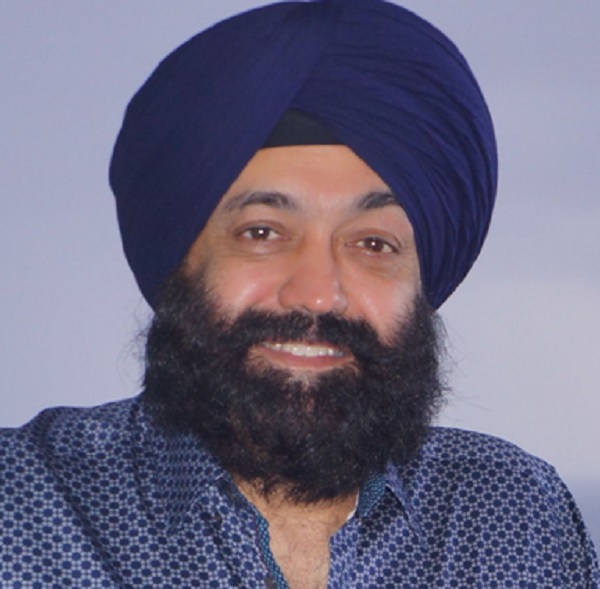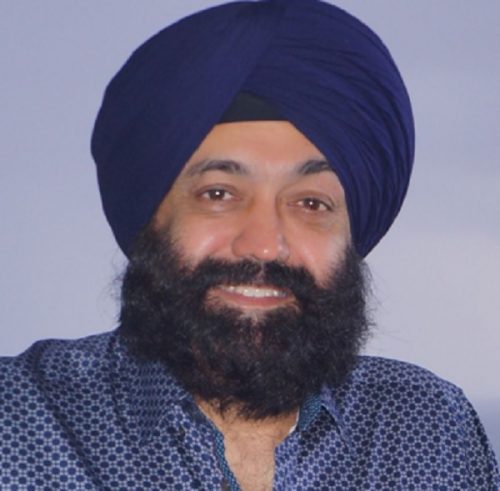
(Editor’s note: This is the first piece in a series profiling Indian American CEOs.)
ECC’s Indian American boss advises people not to over-program and instead prioritize fewer activities
By Ayanna Gandhi
Confucius once said: “Choose a job you love, and you will never have to work a day in your life.”
An age old mantra and one Manjiv Vohra seemingly lives his life by. The president and CEO of ECC International Constructors, Vohra is an avid fan of exploring the outdoors as well as traveling, and his job in construction allows him to do all those things every day.
After getting his BE and MS in Chemical Engineering, and then his MBA in International Business, Vohra joined ECC some 24 years ago.
Started in 1985, the company came when the Clean Air and Clean Water Acts were starting to be implemented and many areas were in need of revitalization.
ECC had a key role to play, as evident by its mission statement: “to provide high quality, comprehensive, and competitive design-build, construction, environmental remediation, disaster response, energy, munitions response, and international development services to [their] clients.”
As the current face of the company, Vohra breaks up the responsibilities of ECC into five categories and details their work under each section.
Firstly, they focus on environmental clean-ups. They have worked on the Manhattan Project as well as with the US military to dispose of toxic chemicals from army bases. ECC also does disaster response. Some of their clean-ups include Hurricane Katrina, Hurricane Sandy, and the California wildfires.
A Californian resident himself, Vohra saw firsthand the devastation which the wildfires brought through both his job as well as his physical proximity to the tragedy.
Thus, he wanted to depict one facet of ECC’s model by using an example that hit close to home for him — the notorious California wildfires that brought down thousands of residences.
Everything burns except for the metal objects, explains Vohra. The copper and lead which our cars and ovens are made of release toxic chemicals when burned, making them the largest contaminants in a fire.
Working in tandem with the military as well as the California Office of Emergency Services, Vohra and his team worked to clean up the devastation and create a blank canvas for an architect or engineer to build on.
Facts about Manjiv Vohra
City of origin: Jalandhar, Punjab, India
Currently living: Hillsborough, California
Favorite motto: From the Upnishads: “Watch your thoughts – they become words; Watch your words – they become actions; Watch your actions – they become habits Watch your habits – they become character; Watch your character – it becomes your destiny”
“Each house is treated like a separate project,” says Vohra. He recognizes that each person has different needs, showcasing his attention to detail and empathy. The team starts by disposing of debris and ash while being cautious to recycle appropriate items such as concrete.
ECC is environmentally focused and makes sure to segregate materials and dispose of them correctly throughout the clean-ups. They then test the area physically and chemically before handing it back to the residents to rebuild their homes, and thus their lives.
They also do disaster prevention in that they have cleaned up sites from the Civil War while still helping to remove unexploded ammunition from other military sites.
More obviously, ECC is large in the business world; they work in over 20 countries with the American government to build facilities from military runways in Afghanistan to weapons centers in California.
Lastly, ECC works on International Development; one of their biggest projects is a water plant in Cameroon that is currently supplying water to 150,000 families.
ECC largely serves the US federal government as well as the governments of California and Oregon from time to time.
Vohra explains that this partnership gives them an edge over other companies, but they also have to abide by a lot more rules. The company is both national and international, following where their clients go.
ECC is also a community both internally as well as with the communities and cities that it works in. For starters, the company is employee-owned, making each individual feel like part-owners.
Vohra also explains that “the financial failures and successes of the company affects everyone,” giving people a sense of teamwork and accountability.
Secondly, ECC attempts to create a community-like feeling within the neighborhoods they serve as well. Vohra explains that ECC employees walk onto sites with “a local-centric approach.”
While ECC brings in experts for specialized parts of a project, they are insistent on hiring as many local people and companies as possible for other jobs.
ECC is also focused on helping these tragedy-struck communities to sustain themselves even after immediate refuge is provided. All of the ECC offices are equipped with information and programs for how to help the population both during the process of revitalization, but also after.
Vohra emphasizes the idea that they, “don’t want to take away people’s lives but are also determined to help in whatever ways they can.”
Therefore, instead of telling people what to do, Vohra explains that they train and develop people. For example, in 2004, ECC was in Iraq where they realized that many people could woodwork and build, but were not incredibly apt at it.
Thus, they set up schools where shop classes were taught, setting people and the country up to cope with future tragedy, but also to help individuals one at a time.
In Colorado, they were able to donate both a fire truck and ambulance to a community which had been struck by disaster. Community certainly means being there in times of crisis, but it is as important to set people up for success in the long run.
To Vohra, his family is just as important as the communities he’s helping through his work. He knows that traveling causes him to miss out on a lot at home, and so he makes an effort to talk to his wife at least once a day when traveling.
He understands that many people have to balance their professional and personal lives, but emphasizes that “When I am home, I am home. I am physically, emotionally, and mentally present.”
It’s just as important to not let your hobbies fall through the cracks, a point that Vohra emphasizes heavily. He reminds people to “Get used to the ‘and’ not the ‘or’. You can do many things, but you first have to believe you have the time and then prioritize those things you want to say ‘yes’ to.”
An inspiring example of this is Vohra’s love of golf. He explains that many times his hobby has fallen through the cracks, but once he started prioritizing his hobbies, he was able to make time for golf.
In fact, he has started to play golf while traveling so that he can be home with his kids when he isn’t out of town. This has not only given him the opportunity to pursue his hobby, but it has even allowed him to play on courses in Afghanistan, Baghdad, and Iraq.
Vohra gives both his kids and our readers a lesson he has learned through his professional life. He says, “Life is a marathon, not a sprint.”
He advises people to not over-program themselves, and instead give fewer activities more priority. Remember that “In the end it’ll all be ok, and if not then it’s not the end.”




1 Comment
Wonderful article. Manjiv is an incredible man. Congratulations to ECC on their success …. both at home and away.